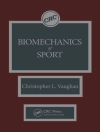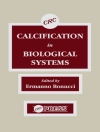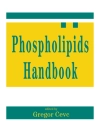The contributed volume ‘ Multidisciplinarity and Interdisciplinarity in Health ‘ is a health-centered volume of the Integrated Science Book series. Lack of confidence, lack of expertise, complexities of healthcare, the confusing nature of healthcare environments, and lack of organization and standardization can become obstacles to successful communication. This volume establishes how extensive is the interface between formal sciences and medical sciences on health-related issues. The book provides an overview of the value of the integration of formal, biological, and medical sciences and related products, i.e., health informatics and biomedical engineering, to frame a holistic approach to health systems, healthcare, medical practice, drug discovery, and medical device design. The book also focuses on innovative solutions to the most critical issues of different health crisis, including obesity, infectious outbreaks, and cancer that can be found by using an integrative approach.It also contains the fascinating crossroads between medical sciences, physics, and mind that is discussed from multiple perspectives on cognition, neuroscience, and psychiatry. These multidisciplinary considerations will expand the concepts of creativity, leadership, aesthetics, empathy and mental health.
Table des matières
Introduction on Integrated Science: Multidisciplinarity and Interdisciplinarity in Health.- Cognitive Sciences as a Naturalistic Model of Interdisciplinary Approaches.- The Aesthetics of Science from the Viewpoint of Neuroscience.- Neuroscience and Quantum Physics Aspect of Human Brainwaves.- Modern Psychiatry: Confluence of Mind, Science, and Society.- Schizophrenia: A Disorder of Timing and Sensorimotor Integration during Decision-making.- Getting to Know Ourselves Through Recognizing Ourselves in Others: Neuroanatomy of Empathy in a Social Neuroscientific Model.- Why People Make Irrational Choices About Their Health?.- Adherence to Treatment: At the Interface of Biological, Medical, and Social Sciences.- Social Cognition and Food Decisions in Obesity.- Nuclear Medicine: A Transdisciplinary Field to Integrate Formal, Physical, Biological, and Medical Sciences.- Beyond the Borders of Dentistry: Interprofessional and Interdisciplinary Approach to Oral Health Promotion.- Drug Discovery in Big Pharma: Where “Birds” and “Fish” Collaborate to Find New Medicines.- A Phenomenological Analysis of the Pandemic: Philosophy and Life.- Engineering, Environment, and Health: Why interdisciplinarity matters?.- Super-spreading in Infectious Diseases: A Global Challenge for All Disciplines.- Possibility of Changes in Travel Behavior as a Consequence of the Pandemic and Teleworking.- Bringing the Two Cultures of the Arts and Sciences Together in Complex Health Interventions.- Thinking Deeper, Wider, Further: Visual Thinking for the Pandemic 3.0 and the Game-Changing Pathways ahead.- The Clinical Benefits of Art Therapy: Definition, History, and Outcomes with a Focus on Music Therapy.- When Combining Arts and Sciences Assists Medical Devices Uses: Deaf Space and Cochlear Implants.- Art, Medicine, and Public Health: Synergizing Humanistic and Medical Strategies in Managing a Pandemic.- Big Data and Artificial Intelligence for E-Health.- Artificial Intelligence in the Medical Context: Who Is the Agent in Charge?.- Ethical Deliberation on AI-Based Medicine.- Towards an Integrative and Holistic Approach to the Discipline of Health Informatics.- Integrated, Multidisciplinary, and Interdisciplinary Medical Education.- Giving Voice to Social Values in Achieving Universal Health Coverage.- Discrimination in Medical Research Sampling: Recommendations and Applications to Psychology.- Integrated Science 2050: Multidisciplinarity and Interdisciplinarity in Health.
A propos de l’auteur
Professor Nima Rezaei gained his medical degree (MD) from Tehran University of Medical Sciences and subsequently obtained an MSc in Molecular and Genetic Medicine and a Ph D in Clinical Immunology and Human Genetics from the University of Sheffield, UK. He also spent a short-term fellowship of Pediatric Clinical Immunology and Bone Marrow Transplantation in the Newcastle General Hospital. Professor Rezaei is now the Full Professor of Immunology and Vice Dean of International Affairs, School of Medicine, Tehran University of Medical Sciences, and the co-founder and Head of the Research Center for Immunodeficiencies. He is also the Founding President of Universal Scientific Education and Research Network (USERN). Prof. Rezaei has already been the Director of more than 100 research projects and has designed and participated in several international collaborative projects. Prof. Rezaei is the editor, editorial assistant, or editorial board member of more than 40 international journals. He has edited more than 50 international books, has presented more than 500 lectures/posters in congresses/meetings, and has published more than 1, 100 scientific papers in the international journals.












